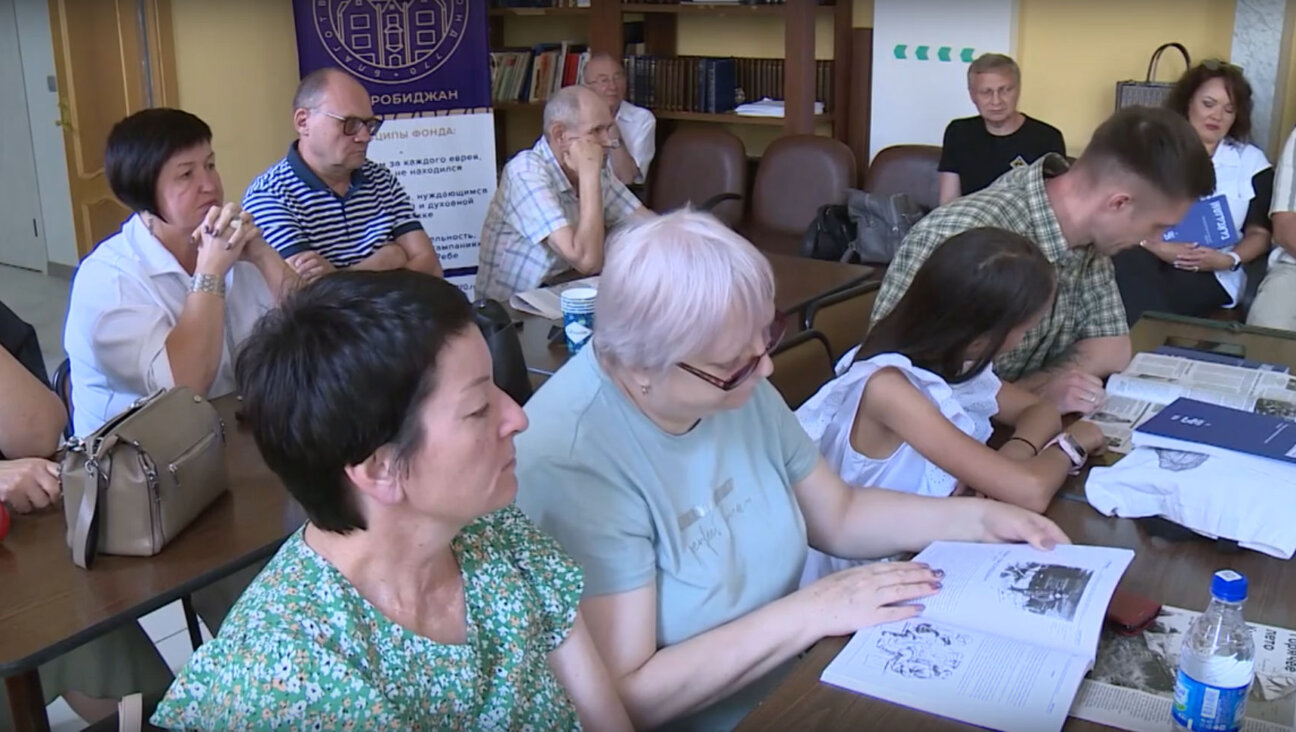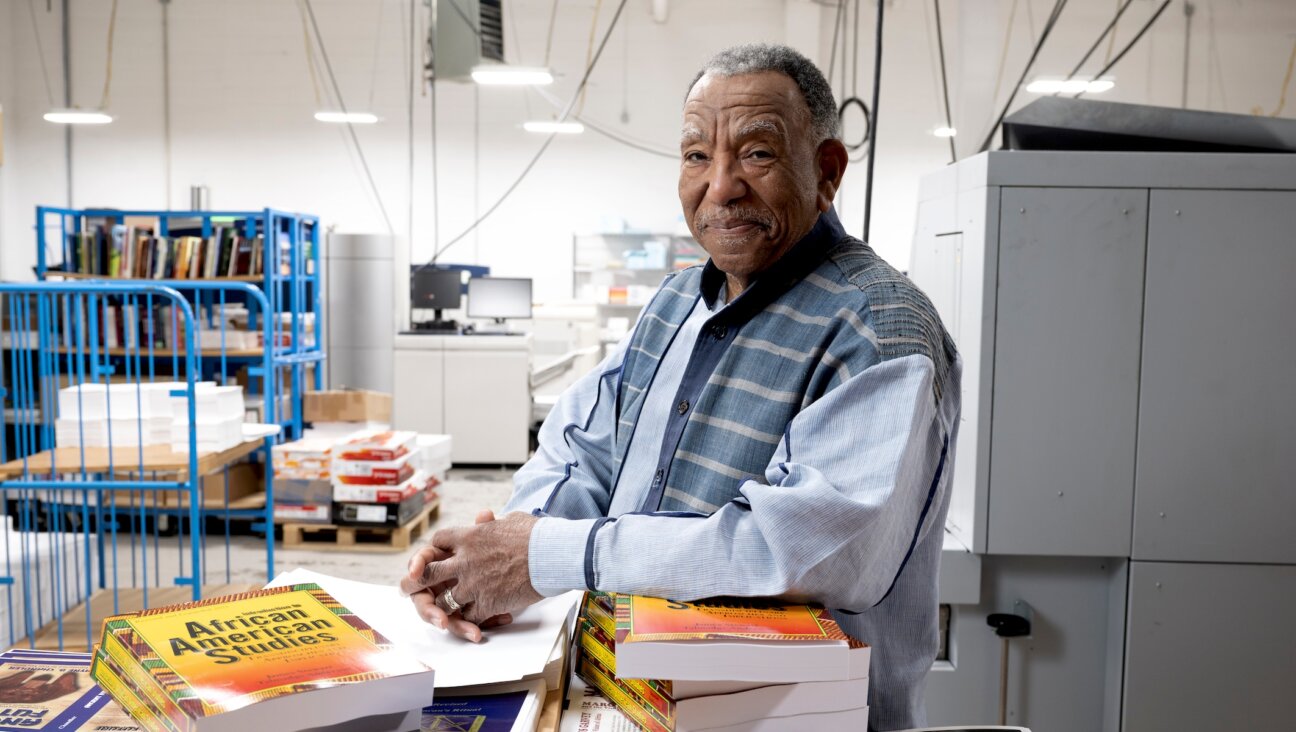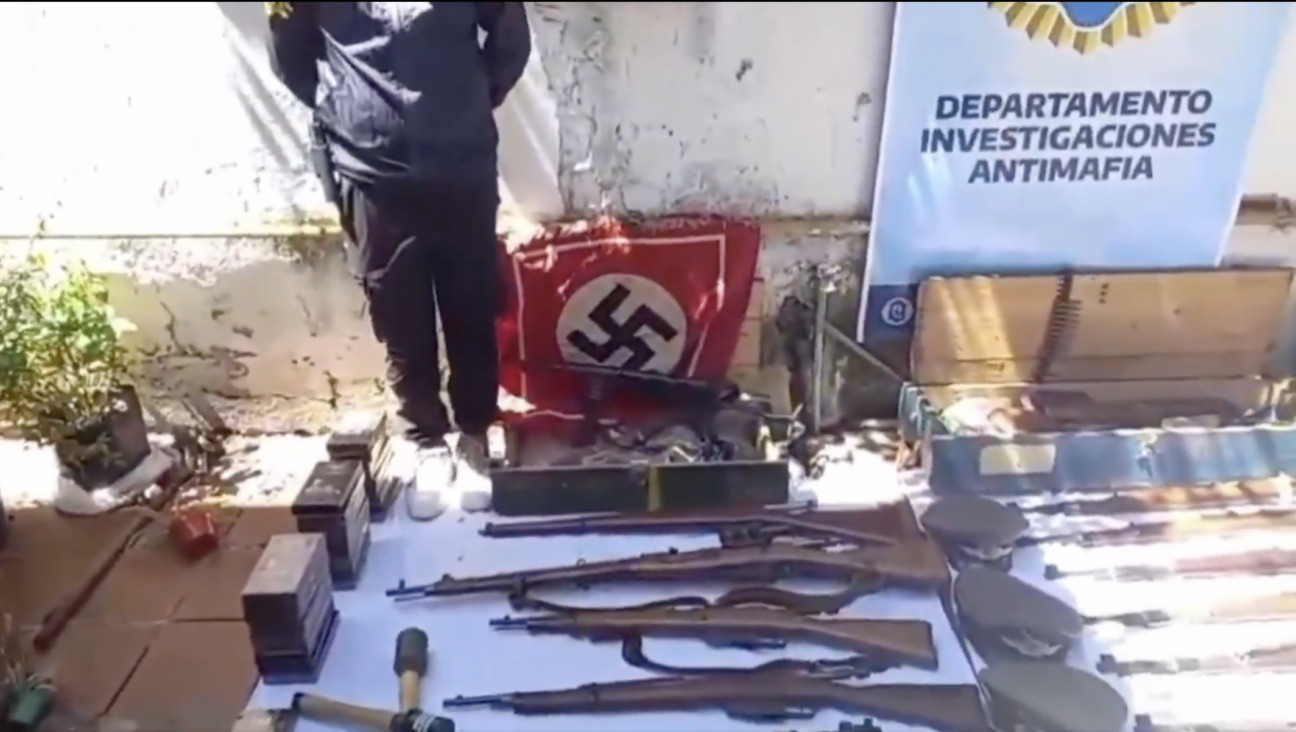"My Name is Asher Lev," America-Israel Friendship League Dinner and Remembering Vladka Meed

Chat: Bernard Lewis and Malcolm Hoenlein talk at the America-Israel Friendship League dinner. Image by Karen Leon
Ralph Lauren Among the Chosen at Opening Night of “My Name Is Asher Lev”
“I just saw your makheteyneste, “ I told the designer Ralph Lauren — who was clad in jeans, black turtleneck and a leather jacket — at the opening night of “My Name Is Asher Lev,” presented at New York City’s Westside Theatre. I was referring to his mother-in-law, Sharon Bush, whom I has just seen on November 19 at the Rabin Medical Center dinner. Last year, Lauren’s younger son, David Lauren, married Lauren Bush, granddaughter of former president George H.W. Bush. I also had quick exchanges with comedian Judy Gold; actor/singer Mare Winningham; theater producers Stewart Lane and Bonnie Comley;“Asher Lev” playwright Aaron Posner, and one of the play’s co-producers, actor Ronald Guttman (who portrays the father-in-law of AMC’s “Mad Men” character Don Draper — and was also the evil Alexander Cambias on the now defunct soap opera “All My Children”). In attendance for the play and at the post-performance bash, held at the restaurant ViceVersa, was Richard Thomas, best known as John-Boy in “The Waltons.” Thomas said, “Never has one actor played so many Jews in one play!” referring to the tour-de-force portrayal by Mark Nelson of a quartet of characters: Asher Lev’s rigid traditional, father, Arye; Asher’s warm uncle; an artist named Jacob Kahn, and Asher’s cautiously sympathetic Hasidic rebbe.
Also deserving of mention is actress Jenny Bacon***, who morphs back and forth as Asher’s shaytl-wearing mother, an artist’s model and an avant-garde gallery owner. But the star of the show is the amazing **Ari Brand, who plays Asher, a young man who tries to be loyal to his Hasidic roots while cultivating an artistic gift that in his world is perceived as a curse.
Malcolm Hoenlein and Bernard Lewis Honored At America-Israel Friendship League 2012 Partners for Democracy Dinner
“The election is over, so get over it!” Malcolm Hoenlein, executive vice chairman of the Conference of Presidents of Major American Jewish Organizations, told the 400 guests at the America Israel Friendship League Partners for Democracy Awards Dinner, to clear the air of any post-election hangnails and focus on the issues at hand. The dinner was held November 20 at The Plaza. Hoenlein, a recipient of AIFL’s 2012 Partners for Democracy Award, said: “For American audiences, it is important to understand that despite the information revolution, cable, Internet, millions of apps that give you all the news instantly — even before it happens — you cannot believe what you read, what you hear, what you see.” Citing “a few exceptions: The Wall Street Journal, The Daily News, Fox,” Hoenlein reflected on what he saw as media bias in Middle East coverage. “We see pictures on front pages of record showing dead children who were killed in the Syrian war, killed by Hamas missiles, who were killed several years ago in a car accident in Gaza — unrelated to history!”
Israel’s consul general in New York, Ido Aharoni, presented a detailed overview of Israel’s negotiation travails over the past 12 years. “If it were land, we could have solved it a long time ago…. Most Israelis today will question the logic behind the territorial deal on the tables. They will tell you, ‘We fear that the unfinished business between us and the Palestinians is not the 1967 War, which was over boundaries and land… but rather the 1948 War, which was over our very right to exist.”
Bernard Lewis, Middle East historian and AIFL 2012 Partners for Democracy Award recipient, was interviewed by Buntzie Churchill, a past president of the Philadelphia World Affairs Council. Asked who is the most impressive leader he has ever met, Lewis replied, “The Polish Pope [John Paul II]. I particularly cherish a recollection when someone asked him, ‘What is your attitude to Jews and Judaism?’ and without hesitation, he answered that he thinks of Judaism as a sibling religion, ‘as to a older brother.’” Lewis recalled Golda Meir’s visit to Princeton University in 1974: “It was about the time when UNESCO had refused to admit Israel and accepted the [Palestine Liberation Organization]. One student asked her, ‘Why did UNESCO do this?’ Golda replied, ‘That’s a question you should address to UNESCO, not me.’ The student persisted, and Golda said, with an absolutely straight face, “Well, as you know, UNESCO is the United Nations Educational. Science and Cultural Organization. We must assume these gentlemen decided that the PLO has more to contribute to education, science and culture than Israel.”
Bret Stephens, deputy editor of the editorial page of The Wall Street Journal, cited an article from a newspaper he would not name. The article described Gaza as “intensely crowded.” Stephens said: “That works out to 12,000 people per square mile. I used to live in Brussels, Belgium, which has 17,000 people per square mile. Tel Aviv has 20,000 people per square mile. In New York City, minus commuters and tourists, there are 26,000 people per square mile. Karachi has 44,000 people per square mile. [This is] a routine way in, in which this entire story is being misreported to make Gaza seem as a meek enclave of poverty and degradation. Commenting on the reporting of how Israel protects its citizens and how life continues in bomb shelters, Stephens said, “The purpose of a Jewish state is not to showcase victimization — the purpose of a Jewish state is to end Jewish victimization.”
Event participants included Dan Gillerman, Israel’s ambassador to the United Nations, and from AIFL, Chairman Kenneth Bialkin, President Harley Lippman, vice president June Dempsey and Rabbi Joseph Potasnik, executive vice president of the New York Board of Rabbis. The evening’s third recipient of the AIFL 2102 Partners for Democracy Award was Sami Sagol, chairman of the Keter Group. His family immigrated to Israel from Turkey. The Keter Group is one of the world’s leading manufacturers of plastic consumer goods, with 29 plants in Israel, Europe and the United States. Annual sales reach the billion-dollar mark.
Remembering Vladka Meed — A Heroic Holocaust Survivor and Voice for Remembrance
Vladka Meed, a Holocaust survivor who died November 21 at the age of 90, having suffered from Alzheimer’s disease, was my baby sitter in prewar Warsaw so that my parents could attend political and cultural meetings at the Nowosci Theater. I vaguely remember the teenage Vladka, who was a member of a politically active youth group with the Yiddishist Yosl Mlotek (another one of my baby sitters).
Years later, in 1947, her husband, the young, redheaded Benjamin Miedzyrzecki (he had not yet changed his last name to Meed), came to the then-home of the YIVO Institute for Jewish Research, on Manhattan’s 123rd Street, where I worked after school. Miedzyrzecki, who later went on to found the American Gathering of Jewish Holocaust Survivors & Their Descendants, told me about his wife’s underground work as a courier during the 1943 Warsaw Ghetto uprising, smuggling weapons between the Polish underground and the ghetto fighters.
Also in 1947, I saw Vladka center stage at a Manhattan theater, at her first public appearance. Wearing a dramatic black satin dress with a white collar, a catch in her voice, she told a transfixed audience: “Ikh vel aykh dertseyln vos is geshen in Varshever geto” (“I will tell you what took place in the Warsaw Ghetto.”) And this is what she had been doing until her last lucid days before she died of Alzheimer’s disease. An honorary chair at the May 13, 2008, American Friends of the Ghetto Fighters’ House Museum gala, she declared: “Will history do justice to our Jewish world that is no more? Will myths or denials prevail? Will the young only learn historical facts, frightening numbers of dead, or will they be able to see beyond the statistics to see the victims as people, as individuals? Will they see the ghetto children as their own peers?” How I miss her.
A message from our CEO & publisher Rachel Fishman Feddersen

I hope you appreciated this article. Before you go, I’d like to ask you to please support the Forward’s award-winning, nonprofit journalism during this critical time.
We’ve set a goal to raise $260,000 by December 31. That’s an ambitious goal, but one that will give us the resources we need to invest in the high quality news, opinion, analysis and cultural coverage that isn’t available anywhere else.
If you feel inspired to make an impact, now is the time to give something back. Join us as a member at your most generous level.
— Rachel Fishman Feddersen, Publisher and CEO





















